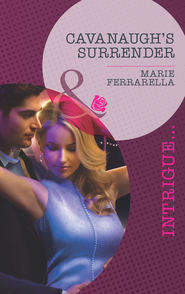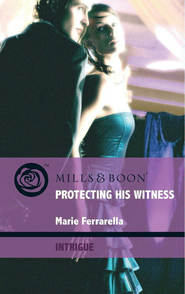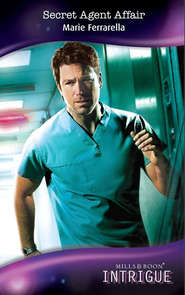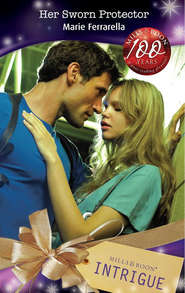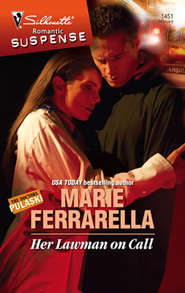По всем вопросам обращайтесь на: info@litportal.ru
(©) 2003-2024.
✖
Sundays Are for Murder
Автор
Год написания книги
2018
Настройки чтения
Размер шрифта
Высота строк
Поля
First, the weapon she wore tucked into the back of her waistband, then the small one that this morning was strapped to her thigh rather than her ankle. No matter how much of a hurry Charley was in, this part of her ritual was precise, methodical. Slow. The fate of Dakota’s next meal depended on it. If she was careless, if she hurried, there might be no one to give the dog her evening meal. And Dakota had been through enough in her lifetime. She had been Cris’s dog first and the transition, after her sister’s murder, had been a difficult one for both her and the animal.
Dakota followed her to the door, emitting a mournful noise that sounded very much like a whistling wind.
“Don’t start,” Charley warned.
She glanced toward the dog’s water and food bowls. Both were full. The teenager she paid to walk Dakota in the afternoon would be by at two o’clock. The dog was taken care of.
Time was short. Charley knew she should already be in her car. Still, she paused for half a second to squat down beside the German shepherd and give the animal a hug. She loved the contrary beast. They had something in common. They both missed Cris.
“I’ll be back,” she promised. “And then we’ll laugh, we’ll cry, and one of us will get a big treat.”
Squaring her shoulders, Charley rose. It was time to leave the shelter of her small apartment and take down the bad guys.
The realization that they might very well be waiting to take her down never escaped her.
TRAFFIC WAS UNUSUALLY sluggish this morning, doubling the fifteen-minute trip from her apartment to the Federal Building where the Bureau field office was housed. The annoying deejays on the radio did nothing to lessen the tension that rode along with her in her four-year-old Honda. She kept switching back and forth between three stations with no luck. None played a song she liked.
Would they catch him this time?
Would the bastard who had cut short the lives of eleven unsuspecting women finally trip up and leave a clue behind so that they could put him out of everyone else’s misery?
She wished she could believe that he would, but her customary optimism was in short supply this morning. Maybe it was the rain that was responsible for her less-than-cheery outlook. It had been raining the night she had come back from the part-time job she’d taken only to find her sister dead in the off-campus apartment they shared. Cris, it turned out later, had been the Sunday Killer’s first victim.
Or, at least, his first known victim, she amended. Who knew if there had been others? Just like who knew why it had been Cris and not she who had been the victim.
Maybe the killer had made a mistake. Maybe Cris was supposed to live and she was the one who was supposed to have died.
Don’t go there, Charley. It’s not going to help.
She could feel her nerves jangling, beginning to fray. If she let them unravel, she wouldn’t be of use to anyone, not her sister, not to the latest victim. Not even to herself. Unraveling was selfish and indulgent, and she didn’t have time for that. Solving this case was all that mattered. She owed it to Cris.
Charley’s hands tightened on the wheel.
THE ROAD OPENED UP just as she took a turn for the cluster of modern buildings that made up the Civic Center in the heart of Santa Ana. In the middle, standing slightly taller than the rest, was the Federal Building.
Turning on her blinker, she merged to the right.
A car sped by her, cutting her off, splashing water all over her windshield and hopelessly obscuring her view for the length of a very long heartbeat.
“Bastard,” she muttered. The second her wipers cleared the windshield for her, she saw the offending vehicle’s D.C. plates. A tourist. It figured. Obviously the man behind the wheel had no idea how to handle slick roads out here.
She laughed shortly to herself. Californians barely remembered how to do it themselves from one rainy season to another.
As she drove into the bowels of the underground parking structure, she had a feeling it was going to be a very long day.
Dakota was not going to be happy with her when she finally got home.
CHAPTER THREE
AS A KID, Nickolas Brannigan never much cared for Mondays.
Mondays always meant regimentation. They meant getting back to the real world, whatever that might be. And First Mondays were the worst. They meant being thrown headlong into yet another new situation. Finding himself in yet another new location, with new names to remember, new faces to commit to memory.
And once there, those names remembered, those faces committed, they were immediately scheduled for future erasure, because as soon as his father’s new orders came through, he and his family packed up, headed for another army camp, another part of the country or the world. With more faces, more names waiting for him.
One would have thought that with eighteen years of this under his belt, he could get through another First Monday with his eyes closed.
Maybe if his eyes were closed, it would be better.
But his eyes were wide-open, taking in every new thing. His need to observe and evaluate always made him feel like a duck in the desert, searching for an oasis. Or at least a decent puddle.
Not that anyone ever noticed he felt this way. He wouldn’t let them notice. Nick prided himself on his ability to hide his true feelings. People called him outgoing, even charming, without ever getting to know the real Nick Brannigan at all. They got to know the outer facade, the man he had to be.
So here he was, facing yet another First Monday. This time he was doing it three thousand miles away from the dot on the map that he had come to call home. Washington, D.C., where most of his family had settled down.
Even his wanderlust father. Retired Army Colonel Harlan Brannigan had decided to face the sunset of his life—though he never referred to it as that—as a teacher of all things. Much to his mother’s relief, the family had finally come together to set down roots.
Until the Bureau had seen fit to transfer him to the other side of the country. A spot had suddenly opened up in the California Santa Ana field office and they needed an experienced man to fill it. He could have refused the assignment but you couldn’t say no to the Bureau and expect to advance in the ranks. And he wanted to go far.
Now if he could only bring himself to unpack his things. He’d been living with moving-van boxes for companions these past few days. The boxes had arrived at his Bureau-chosen apartment at roughly the same time he had. Even his father would have approved of the Bureau’s efficiency.
For this First Monday, Nick was set to report in at nine-thirty. A phone call from someone identifying herself as Alice Sullivan from A.D. Kelly’s office had changed that. Because he was a transfer, he needed to check in and get official clearance before he saw his new boss. Fun and games were to begin an hour and a half earlier than expected. Eight o’clock in the morning was not his favorite time.
Negotiating the unfamiliar streets in the rain only intensified the feeling of dread he couldn’t quite hide from himself, even if he did manage to keep it from the public at large. But then, if he hadn’t managed to get his persona in place at twenty-nine, he might as well have handed in all the marbles and gone home.
A horn blared behind him and he realized that he’d inadvertently cut someone off as he made his turn into the Civic Center.
He’d been told that no one used their horns out here in Orange County. That kind of quick-to-flare temper was something reserved for drivers in metropolitan areas, most notoriously in New York City. Although he had to admit that drivers in the Washington, D.C., area were by no means slouches in that department.
He glanced in his rearview mirror, but couldn’t make out who had been at the wheel of the car now behind him. Hopefully some forgiving soul. He’d heard it was the season for road rage out here in normally sunny California.
Searching for a parking structure, Nick admitted that he missed Washington. More than that, he missed his family, his mother, his brother, his sister and her brood. Hell, he even missed his old man.
Nick smiled to himself. Never thought he’d own up to that.
But he and his father were finally making some headway, finally seeing each other as people. It had been a long time in coming. Harlan Brannigan didn’t know how to relate to children. God knows the man was hardly around long enough to get the hang of it. But now that he and Jeff and Ashley were all grown, things were different.
Nick blew out a breath as he traveled into the underground parking structure. And now it was going to have to be different without him. At least for a while.
Spoils of war.
The ironic phrase had his mouth curving ever so slightly as he found a parking space and got out of his car. The clichеd phrase would have made his father proud.
PROCESSING WENT a great deal faster than Nick had anticipated. Within the hour he found himself on the seventh floor, standing before the A.D.’s office, looking at a woman who gave every appearance of having been lifted out of some 1940s farce and mercilessly transplanted into the twenty-first century.
It was hard to pin an age to Alice Sullivan, but she looked young. Possibly under thirty, although he couldn’t be sure. Definitely not in her forties, even though she dressed like a schoolmarm. She wore wire-rimmed glasses perched on her sharp nose. She was thin, with light blond hair pulled back from her face into a tight knot at the nape of her neck. Her conservative clothes seemed designed to hide her. She definitely had body-image issues, Nick mused. With a shy smile, she stood up to bring him into the A.D.’s office. Nick found himself feeling sorry for her. Despite her position, she made him think of a lost waif.
“He’s looking forward to meeting you, Special Agent Brannigan.” Her voice, high-pitched and reedy, was only a little higher than it had been over the telephone this morning.






